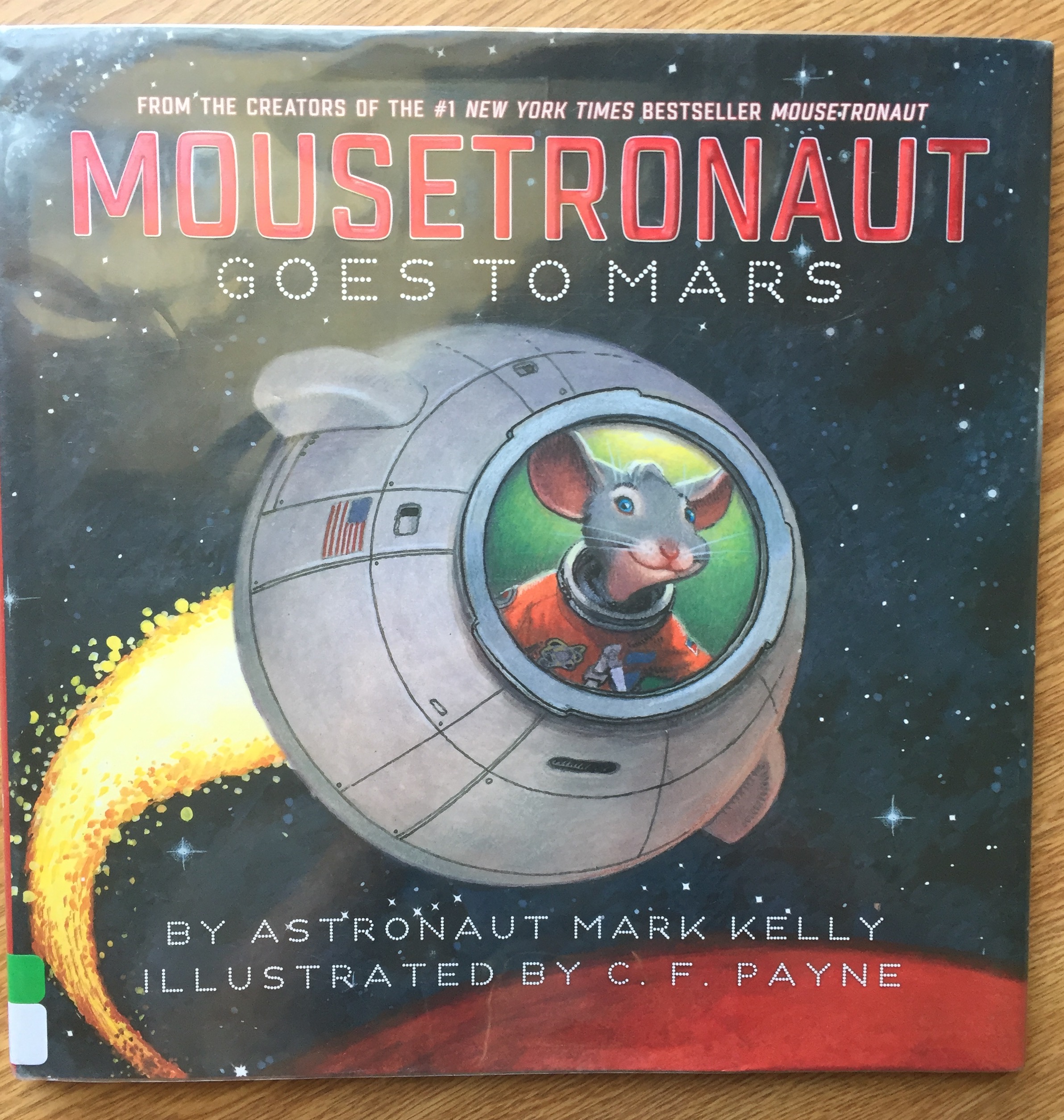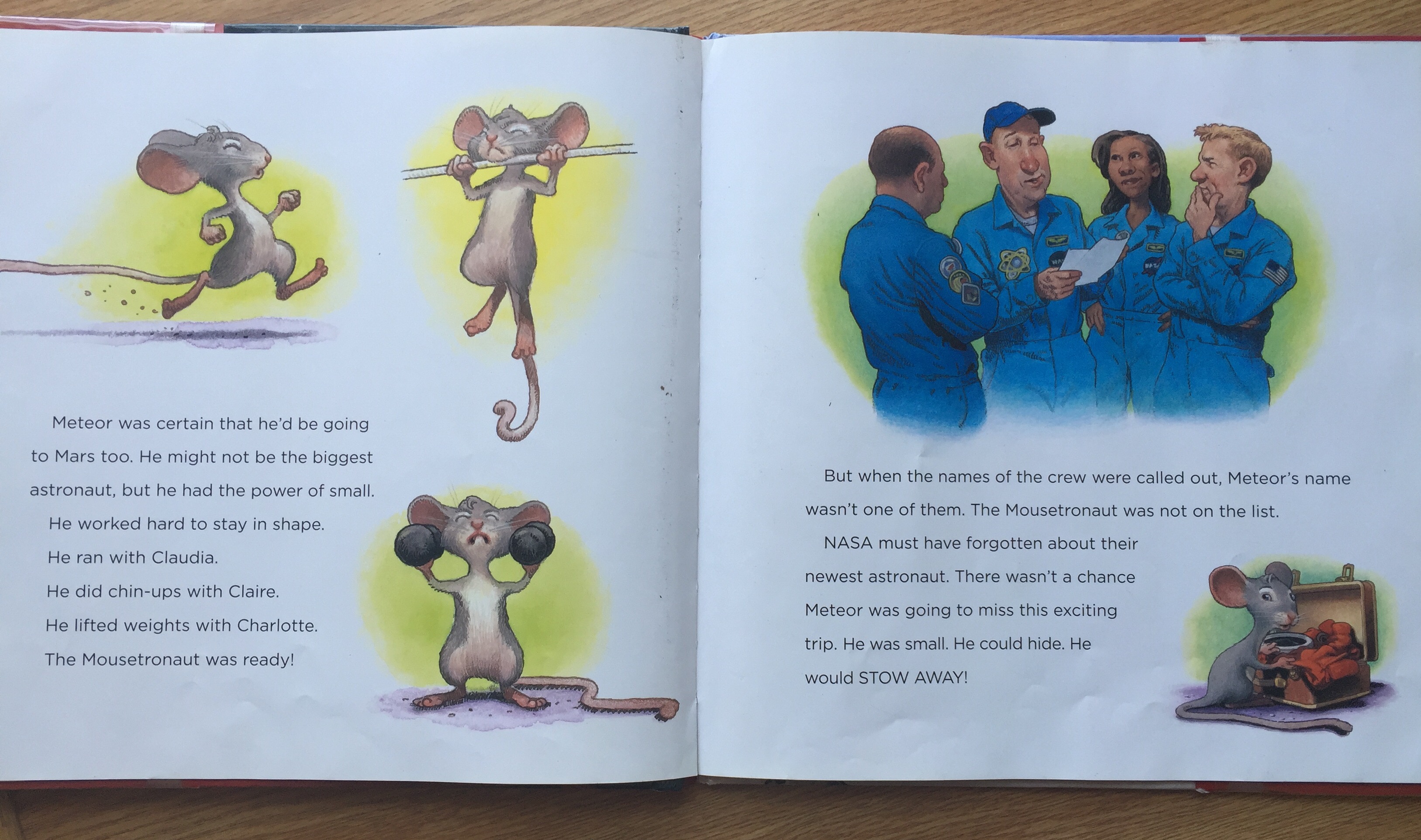
Author: Astronaut Mark Kelly
Illustrator: C.F. Payne
Publisher and Year: Simon & Schuster Books for Young Readers
Number of pages: 30
Genre: Science Fiction
Analysis
Mousetronaut Goes to Mars is the story of the mouse Meteor who is training to be an astronaut. After preparation, the astronauts are ready to leave but Meteor’s name was not on the list. Instead of just staying behind, Meteor sneaks onto the ship and goes to Mars with the rest of the humans. Meteor stays hidden until there is something wrong and the other astronauts a not able to descend to the planet’s surface. Because Meteor is so small, he comes out of hiding and tells the other astronauts that he is small enough to get to the planet with just one rocket. After Meteor is the first Mousetronaut on Mars, the ship heads home and Meteor becomes a hero for saving the mission.

The story itself is very engaging and has colorful pictures that take up the entire page. This text functions as a mirror into the fantastical world of space travel. Since this is a children’s book, I believe it is safe to assume that no children are actually astronauts and thus this book would be a starting off point for children to get interested in space and space travel. Because the main character of the story is a mouse, it seems the illustrator crammed all of the diversity for the book into one astronaut. There are four astronauts usually shown, 3 white males and one black female. While this does have some diversity and is slightly better than all white males, it still enforces the idea that females and non-white people are not welcome in sciences and space travel. However, the text discusses how Meteor trains with three different people, Claudia, Claire, and Charlotte, which are typically female names.

Although the text has these characters, the images are just of Meteor doing the exercise himself. The ideology of the story also leaves something to be desired. While the protagonist is a spunky mouse, he wrongfully goes onto the spaceship and does not get reprimanded. Instead of facing consequences for this, Meteor ends up saving the mission and being praised as a hero. This enforces the idea that children can question authority, which in itself is not necessarily a bad trait, and go against the rules if it is something they feel driven to do. If all children prescribed to this ideology, it could create chaos in a more structured school setting. Overall, I think this book does a good job of getting children interested in science and space travel, but lacks in diversity and a fully positive ideology.
